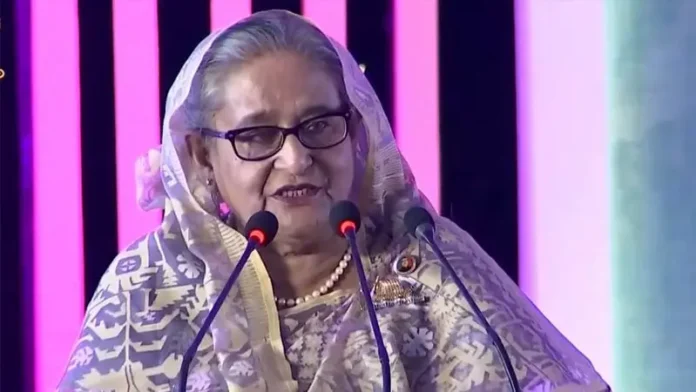Prime Minister Sheikh Hasina disclosed a foreign nation’s audacious proposal to establish an airbase within the country’s borders and carve out a separate Christian state. The revelation, made during a recent parliamentary session, has sparked fierce debate and raised concerns about sovereignty, religious freedom, and the integrity of Bangladesh’s secular identity.
For decades, Bangladesh has prided itself on its secular principles and commitment to pluralism, enshrined in the country’s constitution and cherished as a cornerstone of its national identity. However, the recent proposal to establish an airbase and carve out a Christian state within its borders has threatened to upend these foundational principles, stirring fears of foreign intervention and sectarian strife.
Prime Minister Hasina’s disclosure of the controversial proposal has laid bare the complexities and challenges facing Bangladesh as it navigates the competing interests of domestic and foreign stakeholders. While the identity of the foreign nation behind the proposal remains undisclosed, speculation abounds about the geopolitical motivations driving such a brazen move.
The notion of a foreign nation seeking to establish a military presence within Bangladesh’s borders raises profound questions about sovereignty and national security. The prospect of hosting a foreign airbase on Bangladeshi soil has triggered alarm bells among policymakers and security experts, who warn of the potential risks and implications for regional stability.
Moreover, the proposal to carve out a separate Christian state within Bangladesh’s territory has ignited fears of religious polarization and sectarian tensions. Bangladesh, home to a predominantly Muslim population, has a long history of religious coexistence and tolerance. However, the prospect of partitioning the country along religious lines threatens to undermine these values and sow discord among its diverse communities.
Prime Minister Hasina’s revelation has prompted swift condemnation from opposition leaders and civil society activists, who have denounced the proposal as an affront to Bangladesh’s sovereignty and secular principles. They argue that any attempt to undermine the country’s secular identity and divide its people along religious lines must be firmly opposed and unequivocally rejected.
In response to the controversy, Prime Minister Hasina has vowed to uphold Bangladesh’s secular principles and protect the country’s sovereignty from foreign interference. She has called for unity and solidarity among Bangladeshis in the face of external threats, urging citizens to remain vigilant and steadfast in their commitment to preserving the nation’s unity and integrity.
The controversy surrounding the foreign nation’s proposal underscores the complex interplay of geopolitics, religion, and nationalism in Bangladesh’s socio-political landscape. As the country grapples with internal and external challenges, including economic development, social inequality, and environmental sustainability, the need to safeguard its secular identity and sovereignty has never been more pressing.
Moving forward, Bangladesh must remain vigilant against attempts to undermine its secular principles and erode its sovereignty. The government must work to strengthen democratic institutions, promote interfaith dialogue, and foster inclusive development that benefits all segments of society. By reaffirming its commitment to pluralism and tolerance, Bangladesh can chart a path towards a more peaceful and prosperous future for its citizens.
In the final analysis, the controversy over the foreign nation’s proposal serves as a stark reminder of the challenges facing Bangladesh as it seeks to uphold its secular identity and sovereignty in an increasingly complex and interconnected world. As the country grapples with the implications of this audacious move, the resilience and unity of its people will be tested, shaping the course of its future for generations to come.

